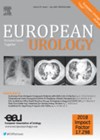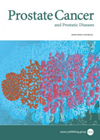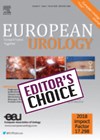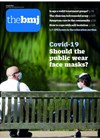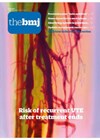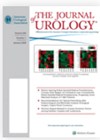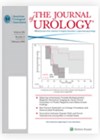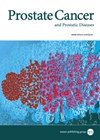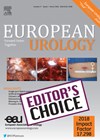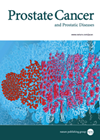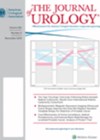
Journal Reviews
COVID-19: cancer and corticosteroids
Under the prevailing COVID-19 crisis, this article is well worth reading. The current World Health Organization (WHO) guidance is not to start steroids in cancer cases, but there is no clear evidence of risks with steroids in cancer patients having...
Ulcerative colitis has a positive association with prostate cancer risk
This large-scale meta-analysis, incorporating studies from several population-based studies, evaluated the association between inflammatory bowel disease (IBC) and prostate cancer (Pca). Emerging evidence has suggested that IBD is a risk factor for extra-intestinal malignancies which may be due to an...
Prostatic artery embolisation versus sham
Randomised trials with use of sham is uncommon in the surgical literature, which makes this paper more interesting. Many different treatments are available for treating lower urinary tract symptoms / benign prostatic hyperplasia (LUTS / BPH). Prostatic artery embolisation (PAE)...
COVID-19 and acute kidney injury
Newspapers and online media are full of the effects of the coronavirus on airways and olfactory functions and the importance of respiratory physicians (pulmonologists in the USA), ventilators and intensive care teams. However, as per the Intensive Care National Audit...
Chronic retention – all you need to know
Chronic retention – all you need to know Chronic urinary retention is a common presentation in elderly and frail patients. Two types should be recognised - low pressure chronic retention (LPCR) and high pressure chronic retention (HPCR). Acute-on-chronic retention occurs...
Can continence and volitional voiding be achieved in bladder exstrophy?
Bladder exstrophy is a challenge to the paediatric urologist; here in the UK, repairs are now undertaken at two centres in order to concentrate experience. The ultimate aim is to achieve urinary continence and volitional voiding. In this study, John...
Relax and take note of this!
Children with neurogenic bladders are at risk of renal compromise through high detrusor pressures. Management aims to provide continence and preserve the upper tracts by increasing capacity and compliance though early clean intermittent catheterisation and anticholinergics. Intradetrusor botulinum toxin has...
Evaluation of the learning curve for learning MRI-US fusion prostate biopsies
With the advent of one-stop prostate cancer diagnostic clinics, the findings of this study are of interest to readers who may be implementing MRI-US transrectal or transperineal fusion biopsies to their clinical practice. This prospective cohort study evaluated 779 consecutive...
Transurethral enucleation is superior to resection for the management of LUTS secondary to BPH
This meta-analysis (Level 1b evidence) examined the efficacy and safety of two primary transurethral therapies used in the management of lower urinary tract symptoms (LUTS) secondary to benign prostatic hyperplasia (BPH), enucleation (HoLEP – holmium laser enucleation of prostate, ThuLEP,...
One cycle of adjuvant chemotherapy in tumours of the testis
Following a radical orchiectomy, current UK practice for newly diagnosed, high-risk, stage 1 nonseminomatous or combined germ cell tumours of the testis (NSCGCTT) is either two cycles of adjuvant chemotherapy with bleomycin, etoposide, cisplatin (BE360Px2) or surveillance with BE500Px3 on...
Prostatic urethral lift for obstructive median lobes: 12-month results of the MedLift study
As the various new BPH therapies try and mark out their role in the management of the condition, this is an interesting and useful addition to the literature. Patients were clinically screened for an obstructive median lobe on cystoscopy, which...
Psychosocial distress in parents of children with DSD
Disorders of sex development (DSD) are a rare set of medical conditions with prevalence rates ranging between 1:00 to 1:5000 births. Secondary atypical genitalia is seen in a subset. Psychosocial aspects have until recently been understudied. We know that some...

